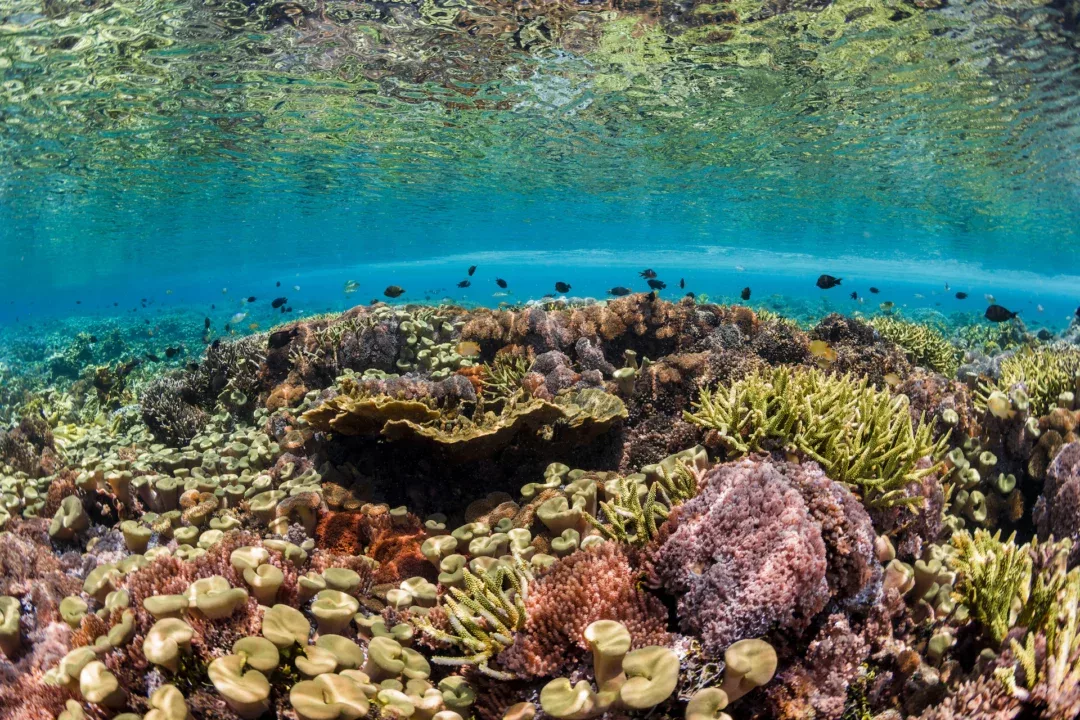
The U.S. Coral Reef Task Force (USCRTF) convened its 49th meeting last month in Saipan, Commonwealth of the Northern Mariana Islands (CNMI). The USCRTF brings together leaders from federal agencies, U.S. states, territories, commonwealths, Freely Associated States of Micronesia, and Fishery Management Councils to collaborate on coral reef conservation efforts. It meets in person twice a year, with its spring meeting in Washington, D.C., and its fall meeting rotating among U.S. coral reef jurisdictions, alternating between the Atlantic and Pacific basins. These jurisdictional meetings provide Task Force members with hands-on experience and direct exposure to the pivotal issues faced by local governments and practitioners working to conserve and restore coral reefs.
During the week, Task Force working groups advanced initiatives on critical topics such as coral disease, climate change, enforcement, fisheries sustainability, restoration, watersheds, and communications. Attendees participated in site visits to some of the region’s most vibrant coral reef areas and engaged with local conservation and restoration efforts led by organizations such as Pacific Coastal Research and Planning (PCRP), Johnston Applied Marine Sciences (JAMS) and Mariana Islands Nature Alliance (MINA). Additionally, 500 Sails highlighted the importance of preserving Indigenous maritime heritage through their work.
The public business meeting opened with the Presentation of Colors, singing of the U.S. and CNMI anthems, a benediction, and the ceremonial blowing of the conch shell. Opening remarks were delivered by Governor Lou Leon Guerrero of Guam and Governor Arnold I. Palacios of CNMI. USCRTF co-chairs Nicole LeBoeuf, Assistant Administrator of NOAA’s National Ocean Service, and acting co-chair John Brewer, Director of the Office of Insular Affairs at the U.S. Department of the Interior, also addressed attendees. During Governor Palacios’s remarks, CNMI’s coral reefs were officially declared critical natural infrastructure, enhancing CNMI’s ability to secure funding for reef conservation.

Expert presentations and panel discussions focused on pressing issues, including coral bleaching, marine biosecurity, and the challenges and opportunities for conservation and restoration in the CNMI.
Building on discussions from the 38th International Coral Reef Initiative (ICRI) General Meeting in Saudi Arabia, the Climate Change Working Group presented a draft standardized operating procedure for monitoring coral health before, during, and after bleaching events. As the fourth global bleaching event finally wanes, the Task Force is prioritizing data-driven approaches to assess damage and identify mitigation strategies for future events.
The meeting also featured participation from the U.S. Agency for International Development (USAID) and two observers from the Philippines, who aimed to learn about the Task Force’s structure and processes as part of their efforts to develop a National Coral Reef Conservation Program and a National Coral Reef Task Force. Their presence underscores the growing importance of international knowledge-sharing and partnership-building in coral reef conservation. ICRI plans to provide further support by fostering such collaborations in the months ahead—stay tuned for updates!


